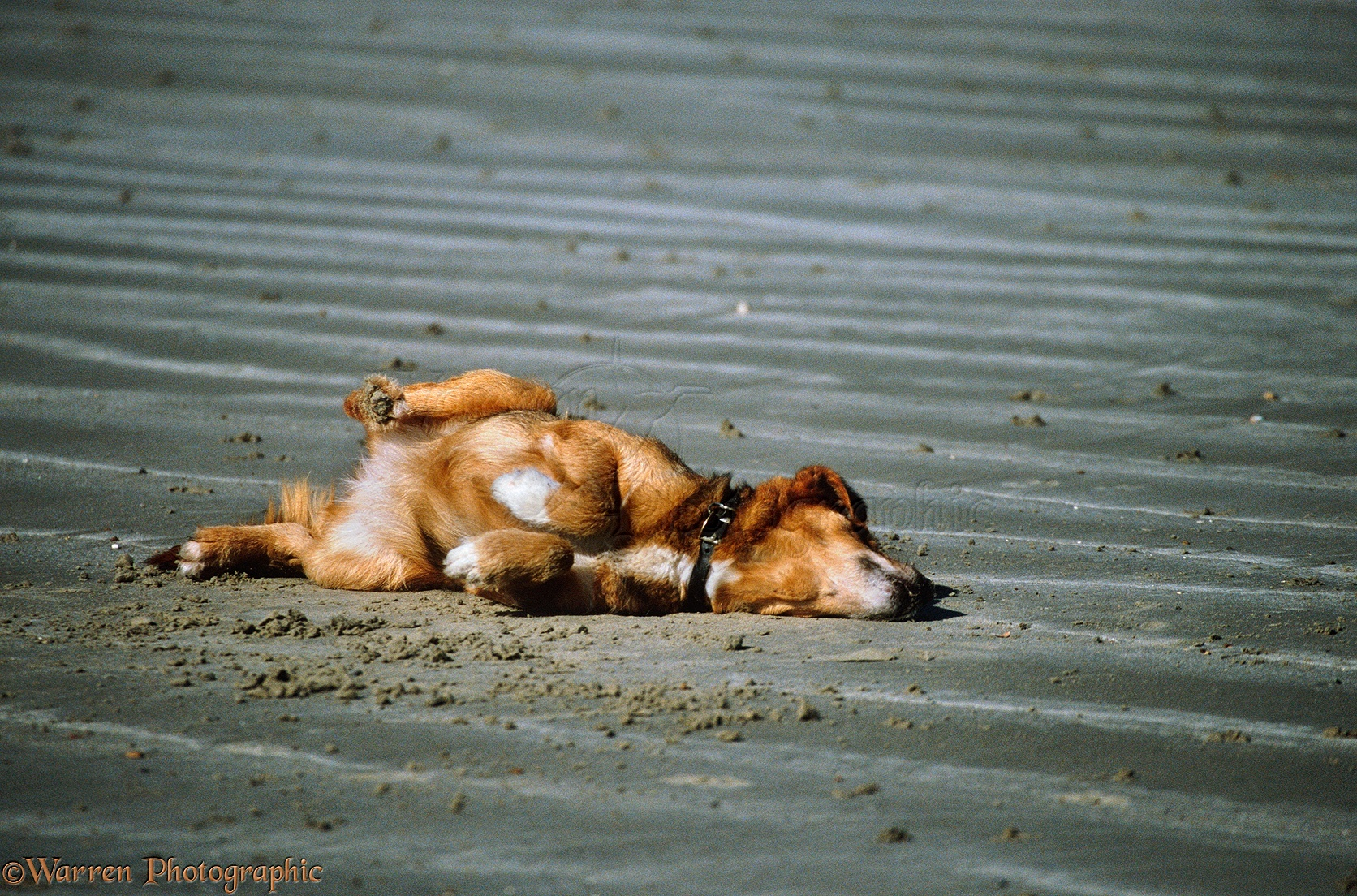Dogs’ puzzling habit of rolling in foul-smelling substances, such as animal feces, has intrigued scientists and pet owners alike. This behavior, which can leave dogs smelling of unpleasant odors, may have deeper evolutionary or social roots than initially assumed.
Simon Gadbois, a researcher studying wild canids in Nova Scotia, Canada, often witnessed his border collie, Zyla, rolling in beaver feces during their fieldwork. Despite the strong odor, Zyla’s ability to track and perform tasks was unaffected. Gadbois, who specializes in understanding how canids experience their environment through scent, remains perplexed by this behavior.
Humans domesticated dogs from wolves around 23,000 years ago, yet our understanding of why dogs enjoy rolling in feces is limited. One theory suggests that this behavior is an evolutionary remnant from their wild ancestors. For wolves and other canids, rolling in scents could have originally served as a form of camouflage, masking their own scent while hunting. However, a 1986 study on captive wolves found that wolves preferred to roll in artificial odors and were less interested in herbivore feces, challenging the idea that scent masking is the primary purpose.
The behavior may also serve as a method of social communication. Pat Goodmann, an animal curator at Wolf Park in Indiana, observed that wolves rolled in various scents, including those of other predators. This might indicate a form of communication or a strategy to avoid other predators, rather than simply disguising their scent from prey.
Further research by Max Allen, an ecologist, revealed that grey foxes in California rubbed themselves with the urine of mountain lions, possibly using the scent as camouflage to evade coyotes. This supports the idea that scent-rolling might help smaller animals avoid larger predators.
For domestic dogs, the behavior might also be tied to social interactions. Just as spotted hyenas and Ethiopian wolves roll in strong odors after meals, dogs might roll in feces to share interesting scents with their human families or pack members. The act of scent-rolling could strengthen social bonds and communicate information about food or territory.
Recent studies suggest that scent-rolling might be part of a more complex communication system. For example, wolves in a Croatian zoo showed selective interest in unusual scents, indicating that scent-rolling could help communicate with other pack members.
Roberto Cazzolla Gatti, a biologist, proposes that scent-rolling might serve multiple functions, including social bonding and identity recognition. Dogs might also find pleasure in strong smells, similar to humans enjoying perfumes. This sensory stimulation could be akin to humans wearing colorful clothing for aesthetic pleasure.
In summary, while the exact reasons behind dogs’ fascination with rolling in feces remain unclear, the behavior likely involves a mix of evolutionary traits, social communication, and sensory enjoyment. As researchers continue to explore these aspects, we might better understand why our canine companions revel in such odorous activities.










